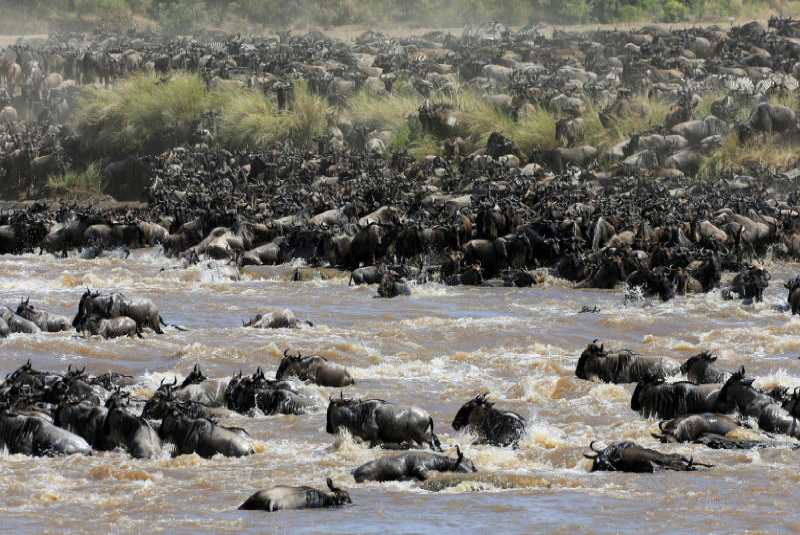×
The Standard e-Paper
Stay Informed, Even Offline

Wildebeests (connochaetes taurinus) cross the Mara river during their migration to the greener pastures, between the Maasai Mara game reserve and the open plains of the Serengeti, southwest of Kenya's capital Nairobi, August 15, 2016. Picture taken August 15, 2016. [Photo:REUTERS/Thomas Mukoya]
The long-awaited wildebeest migration has finally kicked off in the Masai Mara Game Reserve.